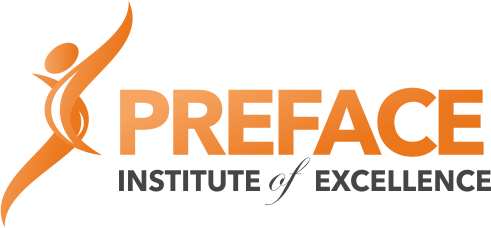INTRODUCTION
Boarding schools are known for their rigorous academic environments, diverse extracurricular activities, and holistic development programs. For many students, gaining admission to a boarding school is a significant achievement, and one of the most crucial steps in this process is the interview. The boarding school interview is more than just a formality; it’s an opportunity for the school to get to know the applicant beyond their academic records and test scores. This guide will help students and parents navigate the boarding school interview process, offering tips, strategies, and insights to ensure a successful outcome.
Understanding the Purpose of the Boarding School Interview
The boarding school interview serves multiple purposes. Firstly, it allows the school to assess the student’s personality, interests, and communication skills. Schools are looking for students who will not only excel academically but also contribute positively to the school community. Secondly, the interview gives the student a chance to learn more about the school and determine if it’s the right fit for them. It’s a two-way street where both the school and the student evaluate each other.
Types of Boarding School Interviews
Boarding school interviews can vary in format, depending on the school. Understanding the different types of interviews can help you prepare effectively.
1. In-Person Interviews
In-person interviews are the most traditional format. These interviews usually take place on the school’s campus and may include a tour of the facilities. Meeting face-to-face allows for a more personal connection, but it also means that students need to be well-prepared to make a positive first impression.
2. Virtual Interviews
In the digital age, many schools offer virtual interviews, especially for international students or during situations like the COVID-19 pandemic. Virtual interviews require the same level of preparation as in-person ones but with the added technical aspect. Ensure that your internet connection is stable, your camera and microphone are functioning properly, and your background is professional and free of distractions.
3. Group Interviews
Some schools may conduct group interviews where multiple applicants are interviewed together. This format allows schools to observe how students interact with their peers. In a group interview, it’s important to be confident but not overpowering, showing that you can contribute to a discussion while also listening to others.
4. Panel Interviews
In a panel interview, multiple interviewers (such as teachers, administrators, and current students) will ask questions. This format can be intimidating, but it’s an opportunity to showcase your ability to engage with different types of people.
How to Prepare for a Boarding School Interview
Preparation is key to success in any interview. Here are some steps to help you get ready.
1. Research the School
Understanding the school you’re applying to is crucial. Research the school’s history, values, academic programs, extracurricular activities, and notable alumni. Knowing this information will help you tailor your answers to show that you’re a good fit for the school’s culture. For example, if a school emphasizes community service, you might want to highlight your volunteer work.
2. Practice Common Interview Questions
While you can’t predict every question you’ll be asked, there are some common ones that you can prepare for:
- Why do you want to attend our school? This question assesses your interest in the school. Use your research to explain why the school appeals to you and how it aligns with your goals.
- What are your academic interests? Be honest about the subjects you enjoy and why. If you’re passionate about a particular field, discuss how the school can help you pursue that interest.
- Tell us about a challenge you’ve faced and how you overcame it. This question is designed to gauge your resilience and problem-solving skills. Choose a situation that shows your ability to handle adversity and what you learned from the experience.
- What do you like to do in your free time? Schools want well-rounded students, so share your hobbies and interests. Whether it’s playing a sport, reading, or volunteering, show that you have a life outside of academics.
- How do you contribute to your current school community? Highlight any leadership roles, clubs, or activities you’re involved in and how you’ve made a positive impact.
3. Prepare Your Own Questions
An interview is also an opportunity for you to ask questions. Prepare thoughtful questions that show your genuine interest in the school. For example:
- What opportunities are there for students interested in [your interest]? This shows that you’re already thinking about how you’ll engage with the school’s offerings.
- Can you tell me more about the school’s approach to [specific aspect, e.g., student wellness, academic support]? This question can help you understand the school’s values and priorities.
- What do you think sets this school apart from others? This question gives the interviewer a chance to highlight the school’s unique qualities, which can help you determine if it’s the right fit.
4. Practice Your Answers
Once you’ve identified potential questions, practice your answers. You can do this with a parent, teacher, or friend. Practice will help you articulate your thoughts clearly and confidently. However, avoid memorizing responses; you want to sound natural, not rehearsed.
5. Focus on Body Language
Your body language can say as much as your words. Maintain good posture, make eye contact, and offer a firm handshake if the interview is in person. Smiling and nodding when appropriate shows that you’re engaged and interested.
6. Dress Appropriately
First impressions matter, so choose your outfit carefully. Dress in professional or smart casual attire, depending on the school’s culture. Avoid overly casual or flashy clothing. If you’re unsure about what to wear, it’s better to err on the side of being slightly overdressed.
7. Arrive Early
Punctuality is crucial. If your interview is in person, plan to arrive at least 15 minutes early. This will give you time to collect your thoughts and compose yourself before the interview. If it’s a virtual interview, log in a few minutes early to ensure everything is working smoothly.
During the Interview: Tips for Success
The interview itself can be nerve-wracking, but these tips will help you stay calm and focused.
1. Be Yourself
Authenticity is key. Schools are looking for students who are genuine and true to themselves. Don’t try to be someone you’re not in an attempt to impress the interviewer. Be honest about your interests, strengths, and areas for improvement.
2. Listen Carefully
Listening is just as important as speaking. Pay attention to the questions being asked and make sure you understand them before answering. If you’re unsure about a question, don’t hesitate to ask for clarification.
3. Take Your Time
It’s okay to take a moment to think before answering a question. This shows that you’re thoughtful and considerate. Avoid rushing through your responses; instead, take the time to articulate your thoughts clearly.
4. Show Enthusiasm
Expressing enthusiasm for the school and the opportunity to attend is important. Let your excitement show, whether it’s about a particular program, the school’s community, or the chance to experience boarding life.
5. Be Polite and Respectful
Manners matter. Be polite to everyone you encounter, from the receptionist to the interviewers. Remember to say “please” and “thank you,” and treat everyone with respect.
After the Interview: What to Do Next
Once the interview is over, there are still a few steps you can take to leave a lasting positive impression.
1. Send a Thank-You Note
A thank-you note is a simple but powerful way to express your gratitude for the opportunity to interview. Send an email or a handwritten note within 24 hours of the interview. Mention something specific from the conversation that you appreciated, which will help reinforce your interest in the school.
2. Reflect on the Experience
Take some time to reflect on the interview. What went well? What could you improve on? This reflection can help you prepare for future interviews, whether for another boarding school or other opportunities.
3. Stay Engaged
If you’re particularly interested in the school, find ways to stay engaged after the interview. Attend any virtual or in-person events the school offers, stay in touch with your admissions contact, and continue to learn more about the school.
Common Mistakes to Avoid
Even with the best preparation, it’s easy to make mistakes during the interview process. Here are some common pitfalls to watch out for.
1. Over-Preparing or Memorizing Answers
While preparation is important, over-preparing can make you sound robotic. Avoid memorizing your answers word-for-word. Instead, focus on understanding the key points you want to convey, so you can speak naturally and spontaneously.
2. Being Overly Casual
Even if the interview feels friendly and informal, remember that it’s still a professional interaction. Avoid using slang, speaking too casually, or appearing too relaxed. Maintain a level of formality to show that you take the opportunity seriously.
3. Focusing Too Much on Academics
While academics are important, boarding schools are also looking for well-rounded students. Don’t focus exclusively on your grades and test scores. Be sure to discuss your extracurricular activities, hobbies, and interests, as these are equally important in the eyes of the admissions committee.
4. Neglecting to Ask Questions
Not asking questions can be a missed opportunity to demonstrate your interest in the school. It might also leave the impression that you’re not fully engaged or haven’t done your research. Prepare thoughtful questions to show that you’re invested in the process.
5. Failing to Follow Up
Skipping the thank-you note might seem insignificant, but it’s a missed opportunity to leave a positive impression. Make sure to send a note promptly to show your appreciation and reiterate your interest in the school.
Additional Resources for Interview Preparation
There are numerous resources available to help you prepare for your boarding school interview.
1. Books and Guides
There are several books and guides specifically focused on boarding school admissions and interviews. These can provide valuable insights, sample questions, and strategies to help you prepare.
- “The Ultimate Boarding School Survival Guide” by Jenny Lord
- “Admission Matters: What Students and Parents Need to Know About Getting into College” by Sally P. Springer and Jon Reider
2. Online Forums and Communities
Online forums like Reddit, College Confidential, and other education-focused communities often have threads and discussions about boarding school interviews. These can be a great place to find advice from current students, alumni, and parents.
3. School Websites and Admissions Blogs
Many boarding schools have admissions blogs or sections on their websites dedicated to helping applicants prepare. These can include tips from admissions officers, sample questions, and success stories from current students.
4. Mock Interviews
Consider arranging a mock interview with a teacher, counselor, or educational consultant. This can provide valuable practice and feedback in a low-pressure setting, helping you to improve your performance in the actual interview.
Conclusion: Embrace the Opportunity
Preparing for a boarding school interview can be a daunting task, but it’s also an exciting opportunity to showcase who you are and what you can bring to the school community. By researching the school, practicing common interview questions, and presenting yourself authentically, you can make a strong impression on the admissions committee. Remember, the interview is just as much about finding the right fit for you as it is about the school evaluating you. Embrace the process, stay positive, and let your personality shine. With the right preparation and mindset, you’ll be well on your way to acing your boarding school interview and taking the next step in your educational journey.
The Preface Institute: Shaping Future Leaders for Boarding School Success
Introduction
In today’s competitive world, gaining admission to a prestigious boarding school is a significant milestone for any child. It’s not just about passing an entrance exam; it’s about preparing students to thrive in an environment that demands academic excellence, social adaptability, and emotional resilience. The Preface Institute stands as a beacon of excellence, dedicated to preparing students for boarding school entrance with a unique, holistic approach that ensures they are not only academically prepared but also ready to embrace the challenges and opportunities of boarding school life.
The Preface Institute: A Brief Overview
Founded with a mission to empower young minds, The Preface Institute has been a leader in preparing students for boarding school entrance exams and beyond. The institute has garnered a reputation for its exceptional success rates, innovative teaching methods, and commitment to the overall development of each child.
The Preface Institute understands that boarding school education requires more than just academic knowledge; it requires a well-rounded individual who can excel in academics, participate in extracurricular activities, and adapt to a new social environment. With this understanding, The Preface Institute has crafted a curriculum and methodology that goes beyond conventional test preparation.
Unique Methodology: The Preface Approach
The Preface Institute’s methodology is designed to cater to the individual needs of each student. Recognizing that every child is unique, the institute offers a personalized learning experience that focuses on both strengths and areas that need improvement.
1. Customized Learning Plans
At The Preface Institute, the journey begins with a thorough assessment of each student’s current academic standing, learning style, and personality traits. Based on this assessment, a customized learning plan is developed that aligns with the student’s goals and the specific requirements of the boarding schools they aim to enter.
2. Focus on Critical Thinking and Problem-Solving
Boarding school entrance exams often test more than rote memorization. They challenge students to think critically, solve complex problems, and apply their knowledge in unfamiliar contexts. The Preface Institute places a strong emphasis on developing these skills through a curriculum that encourages analytical thinking, creativity, and logical reasoning.
3. Interactive and Engaging Teaching Techniques
The institute employs a variety of teaching techniques to keep students engaged and motivated. These include interactive lessons, group discussions, project-based learning, and hands-on activities. The goal is to make learning enjoyable while ensuring that students grasp complex concepts effectively.
4. Experienced Faculty with a Passion for Teaching
The Preface Institute boasts a team of highly experienced and passionate educators who are experts in their respective fields. The faculty members are not just teachers; they are mentors who guide students through their learning journey, offering support, encouragement, and valuable insights into the boarding school admission process.
5. Regular Assessments and Feedback
To ensure that students are on the right track, The Preface Institute conducts regular assessments and provides detailed feedback. These assessments help identify areas where students may need additional support and allow the institute to adjust the learning plan accordingly. Parents are also kept informed of their child’s progress through regular reports and meetings.
A Holistic Approach to Education
The Preface Institute’s commitment to holistic education sets it apart from other preparatory programs. The institute believes that preparing a child for boarding school involves nurturing their intellectual, emotional, and social development.
1. Emotional and Social Preparedness
The transition to boarding school can be daunting for many students. The Preface Institute prepares students emotionally and socially by offering counseling sessions, group activities, and workshops that focus on building confidence, resilience, and interpersonal skills. These sessions help students develop the emotional intelligence needed to navigate the social dynamics of boarding school life.
2. Extracurricular Enrichment
Boarding schools value well-rounded individuals who excel not only in academics but also in extracurricular activities. The Preface Institute encourages students to pursue their passions and develop new interests through a variety of extracurricular programs, including sports, arts, music, and leadership activities. These programs help students build a diverse portfolio that strengthens their boarding school applications.
3. Leadership and Teamwork Development
Leadership and teamwork are essential qualities for success in boarding school and beyond. The Preface Institute offers leadership development programs that teach students how to lead effectively, work collaboratively, and contribute positively to their community. Through team-based projects, students learn the importance of communication, empathy, and collaboration.
4. Boarding School Orientation
Understanding the boarding school environment is crucial for success. The Preface Institute offers orientation sessions that familiarize students with the boarding school culture, expectations, and routines. These sessions cover topics such as time management, self-discipline, and independent living skills, ensuring that students are fully prepared for the boarding school experience.
Embracing Hybrid Learning: The Best of Both Worlds
In response to the evolving educational landscape, The Preface Institute has embraced a hybrid learning model that combines the best of in-person and online education. This flexible approach allows students to access high-quality instruction from anywhere in the world while still benefiting from face-to-face interactions with their peers and instructors.
1. Online Classes and Resources
The Preface Institute offers a comprehensive online learning platform that includes live classes, recorded lectures, interactive assignments, and digital resources. This platform allows students to learn at their own pace and revisit material as needed, providing a personalized learning experience that caters to their individual needs.
2. In-Person Sessions
For students who prefer or benefit from in-person instruction, The Preface Institute offers regular on-campus sessions where they can engage with their teachers and classmates in a more traditional setting. These sessions focus on hands-on activities, group discussions, and collaborative projects that enhance the learning experience.
3. Flexible Scheduling
The hybrid model offers flexibility in scheduling, allowing students to balance their studies with other commitments, such as extracurricular activities, family responsibilities, or travel. This flexibility ensures that students can maintain a well-rounded lifestyle while preparing for boarding school entrance exams.
Testimonials from Successful Students
Shambhavi:
“The Preface Institute was instrumental in my journey to getting into my dream boarding school. The personalized learning plan helped me focus on my weak areas, and the interactive classes made learning fun. The emotional support I received from my mentors helped me overcome my fear of living away from home. I am so grateful for their guidance!”
Vidhi:
“I was nervous about the boarding school entrance exams, but The Preface Institute prepared me in every way possible. The regular assessments and feedback helped me stay on track, and the boarding school orientation sessions made me feel ready for the transition. I couldn’t have done it without them!”
Shaurya:
“The holistic approach at The Preface Institute really sets them apart. They didn’t just prepare me academically; they helped me develop leadership skills and pursue my passion for music. I feel confident and excited about starting my new journey at boarding school!”
Samaira:
“The hybrid learning model at The Preface Institute was perfect for me. I was able to balance my studies with my love for sports, and the online resources were incredibly helpful. The in-person sessions gave me the chance to connect with other students, and I made some great friends. I highly recommend The Preface Institute!”
Conclusion
The Preface Institute is more than just a preparatory program; it’s a transformative experience that prepares students for success in boarding school and beyond. With its unique methodology, holistic approach, and commitment to the overall development of each child, The Preface Institute continues to shape future leaders who are ready to excel in all aspects of life.









